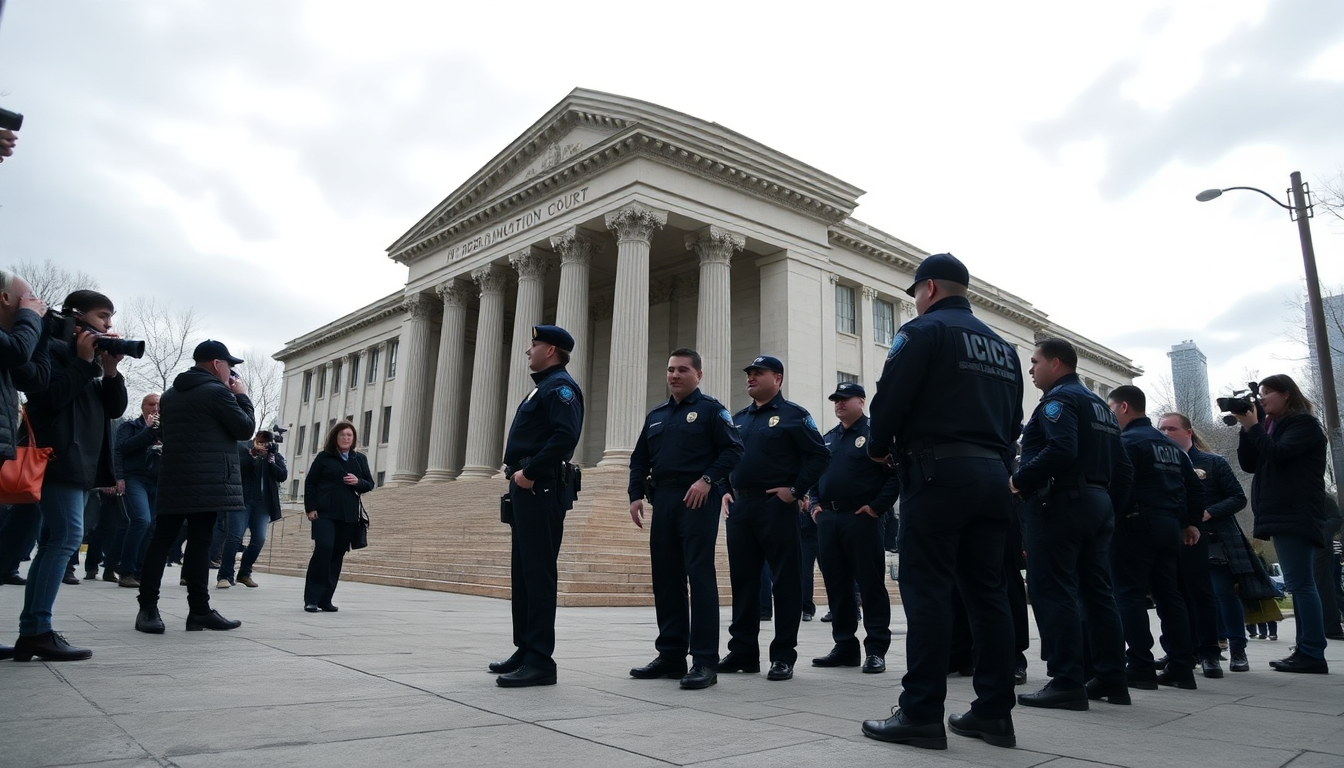Table of Contents
In a startling scene outside a federal immigration court in New York City, mayoral candidate Brad Lander found himself detained by federal agents from Immigration and Customs Enforcement (ICE). This incident doesn’t just shine a light on the heated debates surrounding immigration enforcement in the U.S.; it also raises important questions about the legality of such actions against public figures. Lander was there to observe immigration hearings, a reminder of the complexities and challenges that define immigration policy in today’s political landscape.
The Arrest: A Chaotic Scene
On a Tuesday afternoon, as Lander tried to assist someone leaving the courtroom, he was suddenly confronted by masked ICE agents. Eyewitness accounts and video footage show a tumultuous situation as Lander was physically restrained, with agents claiming he was “obstructing” their duties. Was he really in the way, or was he simply trying to help? His wife, Meg Barnette, described the encounter as an alarming display of federal overreach, emphasizing that they felt swarmed without any justification. This raises serious concerns about how individuals are treated during immigration proceedings and what rights they really have.
During the incident, Lander repeatedly asked to see a judicial warrant, making it clear that he believed legal authority was necessary for such actions. His insistence on due process underscores an ongoing debate about the rights of U.S. citizens and how far the government can go in immigration matters. As he was led away, Lander maintained that he was merely standing in the hallway and hadn’t done anything to obstruct their efforts. Could this be a wake-up call for those who think federal agents always have the upper hand?
Political Reactions and Implications
The arrest of a well-known political figure like Lander has sparked a flurry of discussions about immigration enforcement, prompting reactions from various political leaders. Former New York Governor Andrew Cuomo condemned ICE’s actions, suggesting that such incidents only fuel a climate of fear among immigrant communities. His words resonate with widespread worries about how aggressive immigration enforcement can tear families apart and lead to unjust detentions. How will this impact the lives of those affected?
As Lander campaigns for the Democratic mayoral primary, this incident could profoundly shape voter opinions and ignite conversations about immigration policies in New York City. With early voting just around the corner, the timing of the arrest adds another layer of complexity to an already charged political environment. Candidates may now feel pressured to clarify their views on immigration and law enforcement, potentially reshaping their priorities to connect with constituents who care deeply about these issues.
The Broader Context of Immigration Enforcement
This episode unfolds amid a backdrop of increasing immigration enforcement actions across the United States. Reports show that federal officials are ramping up arrests outside immigration courtrooms, often acting on government requests that can lead to expedited removals. These practices have alarmed advocates for immigrant rights, who argue that they threaten due process and foster an atmosphere of fear among vulnerable communities. Is the balance between enforcing immigration laws and protecting individual rights becoming too heavily skewed?
The situation raises fundamental questions about how we can enforce immigration laws while still safeguarding personal rights. As public discourse continues to evolve, Lander’s arrest may serve as a catalyst for deeper discussions about immigration practices and the legal frameworks that govern them. Will this incident inspire real change, or is it just another headline?
In the coming weeks, it will be essential to keep an eye on how this incident impacts the political landscape in New York City and the broader discussions around immigration enforcement across the nation. The intersection of politics and immigration law is a contentious arena, and events like this one highlight the urgent need for dialogue and reform. Are we ready to tackle these tough issues head-on?


